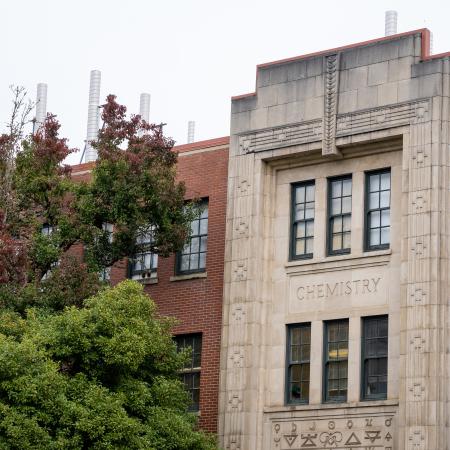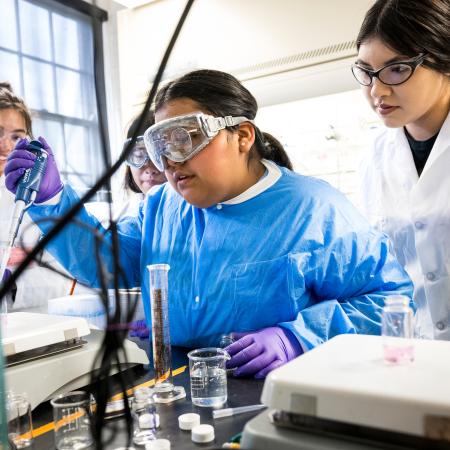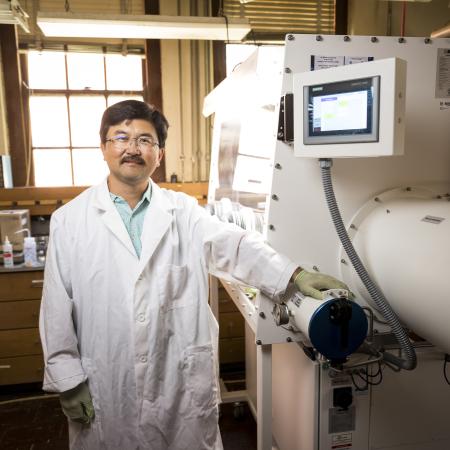Notes
a MTH 112 can be taken to prepare for MTH 251 if the score on ALEKS Math Placement assessment is60-74 . MTH 112 is not a required course for the chemistry degree.
b Chemistry majors are strongly encouraged to take the chemistry major's orientation course, CH 220, Careers in Chemistry, fall term. This is 1 credit (P/N).
c BI 109, Health Professions: Medical is a pre-med orientation course and strongly suggested. This is 1 cr. (P/N). A pre-dental orientation course is taught winter term (BI 107).
d CH 324, an analytical chemistry course, is taught every term. The combination of CH 421, CH 422 and CH 461 may be substituted for CH 324 for students who desire the strongest background in analytical chemistry. With these three analytical chemistry courses, only one inorganic chemistry course is required (CH 411) so that the required credit hours only increases by 2 (compared to the program shown in the table). Note that CH 421 and CH 461 are taught only fall term and CH 422 is only taught in winter term.
This order of courses is suggested. However, for the track-two core courses (CH, MTH, PH), order is critical because of prerequisites and the fact that most CH courses are taught only one term per year. The option courses (BI, BB, ST 351, PH 444) can be taken at different times than indicated, but one must be concerned with the prerequisites for BB courses and upper-division BI courses and the fact that many upper-division BB and some upper-division BI courses are taught only one term per year.
Bacc Core courses are not shown in the table but are specified in the OSU Catalog and in MyDegrees under Baccalaureate Core Requirements
Students in this option should also meet with either Dr. Daniel Myles or Dr. Neal Sleszynski who are the pre-med advisers in the Department of Chemistry.



